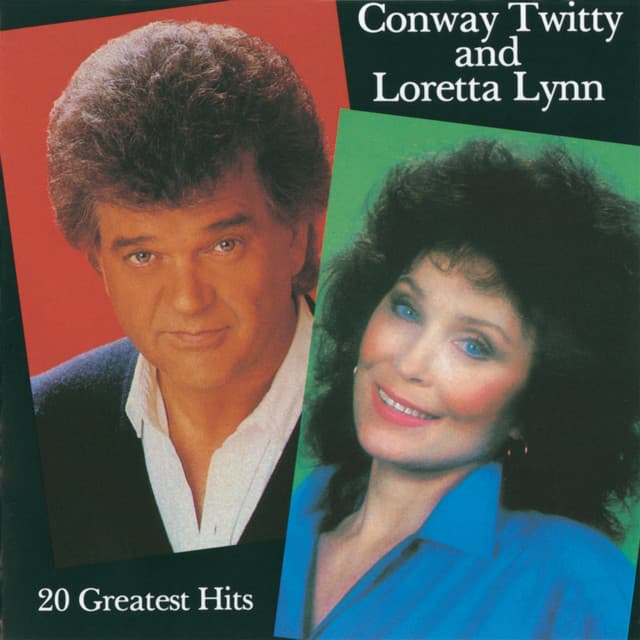
A forbidden dance of desire and a plea for surrender.
It was 1971, a year that saw the lines of country music blurred and redrawn by a new breed of artists. But in the heart of Nashville, a different kind of revolution was taking place—one steeped in tradition, yet brimming with a raw, adult honesty that was years ahead of its time. The two icons at its center were the legendary Conway Twitty and the peerless Loretta Lynn. Their second collaborative studio album, released in January 1972, was titled “Lead Me On,” a name that perfectly captured the essence of its boldest and most celebrated track. The single “Lead Me On” was released a few months earlier, in September 1971, and it immediately struck a chord. It wasn’t just a hit; it was a testament to the powerful, almost scandalous, chemistry the duo shared.
The song shot to the top of the charts, becoming a monumental success. It was the second number-one hit for the celebrated duo on the U.S. country singles chart, where it held the top spot for a week and spent a total of fifteen weeks on the chart. This success cemented their status as a musical powerhouse, and the Grammy-winning combination of Conway and Loretta would go on to define country duets for a generation.
The story behind this song is as compelling as its subject matter. Written by Leon Copeland, “Lead Me On” arrived at a pivotal moment in the duo’s career, following their first chart-topping single, “After the Fire Is Gone.” While that song was a somber reflection on a dying love, “Lead Me On” was a desperate, almost reckless plea. The lyrics speak of two people who know their desire for one another is wrong, a betrayal of promises they’ve made to others. It’s a beautifully crafted plea for one person to take control, to be the one to “lead me on,” so that the other can absolve themselves of guilt. It’s an exploration of forbidden love, of a passion so overwhelming that it feels beyond their control. This lyrical honesty, paired with their undeniable vocal connection, made the song feel deeply personal, almost like listening in on a private conversation.
The power of “Lead Me On” lies in its daring to explore a very adult, complex theme. It’s not a song about youthful infatuation, but about the profound, sometimes painful, decisions of mature people. For many listeners, particularly those who were navigating the complexities of their own lives and relationships, this song was a mirror. It gave voice to the whispers of temptation and the struggles with fidelity that weren’t often sung about so openly on the radio. Conway’s signature smooth, yet soulful, delivery combined with Loretta’s equally poignant vocals to create a narrative that felt both deeply wrong and completely understandable. They weren’t just singing; they were acting out a dramatic scene, pulling listeners into the emotional turmoil of their characters.
For those of us who remember a time when country music told these kinds of raw, unvarnished stories, “Lead Me On” holds a special place. It evokes memories of a time when the music on the radio felt alive, when a song could make you feel like you were privy to someone’s most intimate confession. The song’s gentle, rolling melody, driven by that signature Nashville sound, is the perfect bed for the weight of the lyrics. It’s a masterpiece of subtle tension and heartfelt surrender, a song that reminds us that sometimes, the most honest feelings are those we are most afraid to admit. It remains a powerful testament to the timeless magic created when two of country music’s greatest voices stepped into the studio and dared to sing about the kind of love that can’t be tamed.